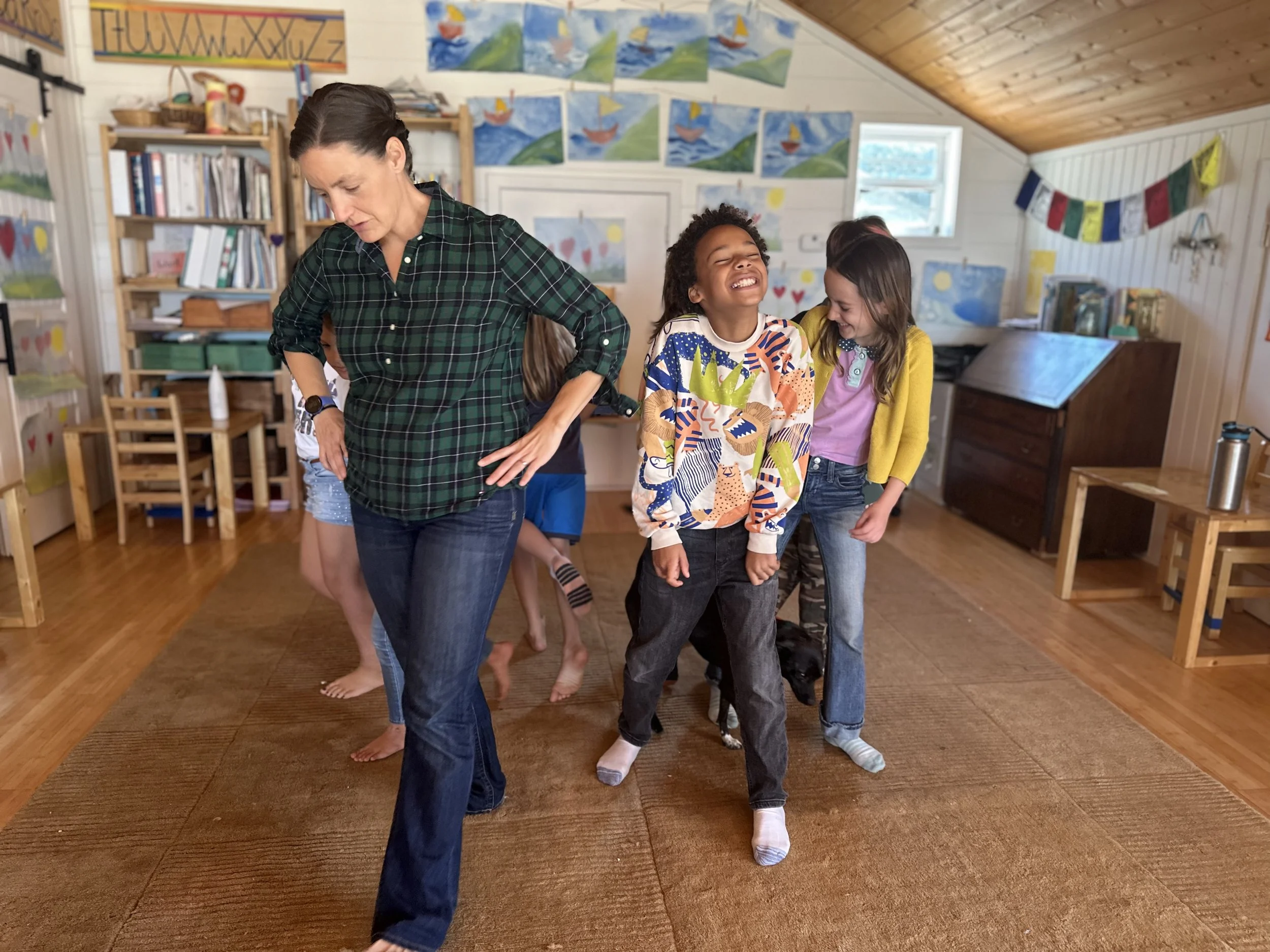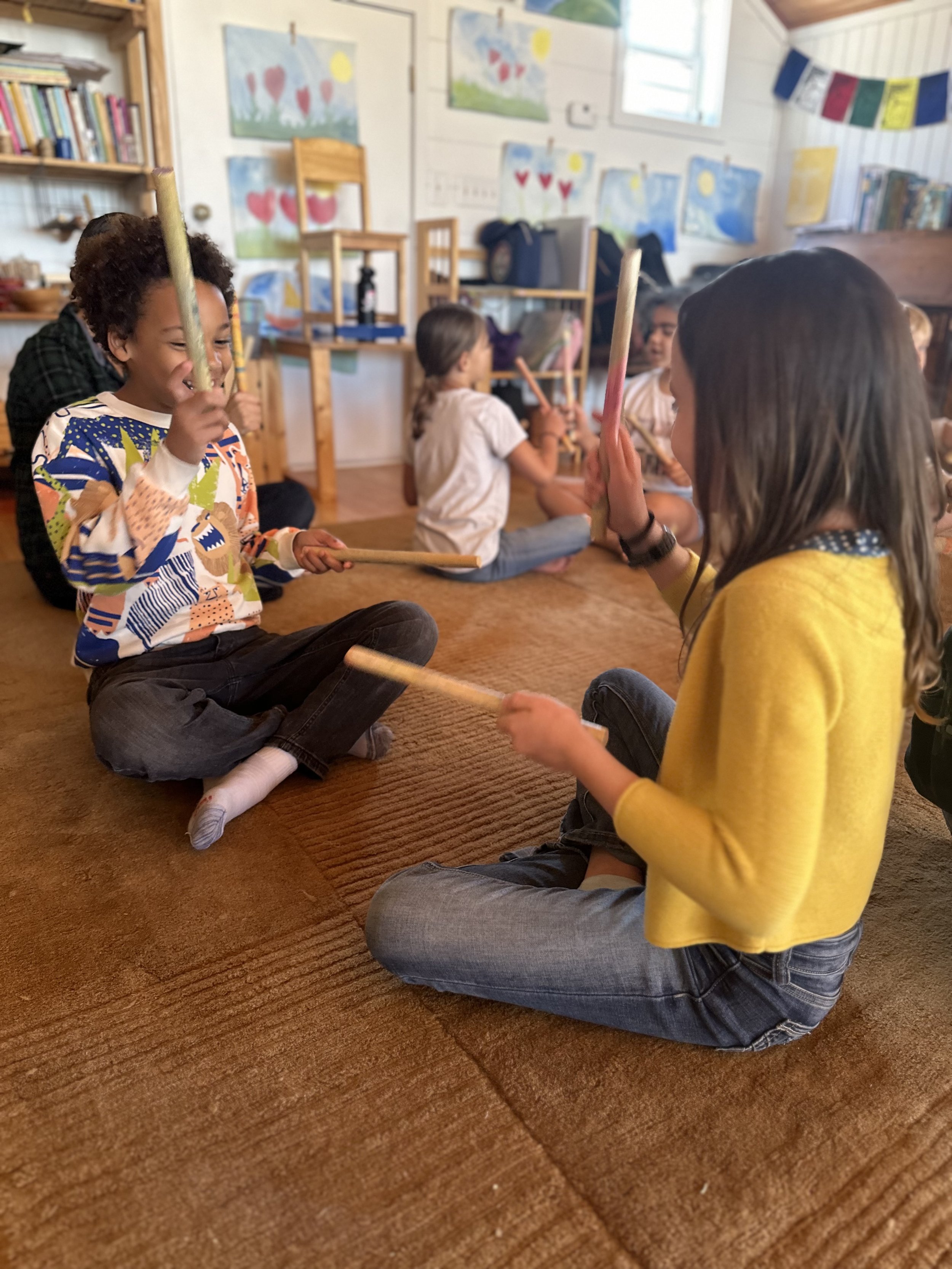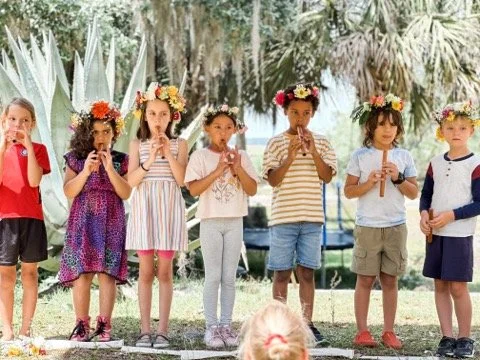
Tidewater Waldorf
A Home Education Community
Our Programs
“Receive the children with reverence, educate them with love, send them forth in freedom.”-Rudolf Steiner
-

Kindergarten Program
Tidewater offers a mixed age (4-6) Kindergarten community Monday, Wednesday and Thursday mornings. It allows our children to explore the natural rhythm of family life, while also enjoying the company of friends their age. Waldorf emphasizes the importance of protecting our children’s childhood and allowing them to flourish through their imagination and play. Our program includes imaginative play, baking, circle time with songs, poems and integrative movement, story time, art, and outside playing and exploring in nature.
-

3rd/4th Grade Program
In our combined 3rd/4th grade class all areas of our curriculum incorporate imagination, art, nature and movement. The day starts with "main lesson" which is a 2-hour block of time that carries the rhythm and new material of the day. We start each day with movement and song, recorder playing and poetry. Our day then brings new academic material (which is always brought through imagination and applied with art) and finished with a story. Following the main lesson there is lunch, outside play and one of our many extra lessons: handwork(knitting and crocheting), watercolor painting, music, sculpting, Spanish, woodwork, gardening and form drawing.
-
3rd/4th Grade Specials Program
We are excited to offer this year a 3/4th grade specials program. This program will allow 3rd and 4th grade students to join our3rd/4th grade class 2 hours a day for our art and music program. From 11:30-1:30 students can come join our grades group and participate in watercolor painting, ukulele, handwork, Spanish, gardening, wood working, sculpting
Waldorf pedagogy nurtures, protects and develops fully the intelligence of the child. To do this the curriculum must live and speak to the child's experience, and meet them where they are at, rather than where we imagine they should be. The curriculum must be alive, creative, expressive and nourishing to the child’s ‘will forces and feeling life’ as well as the intellect. Waldorf education develops and harmonizes these three aspects: “thinking" — head activity through scholastic discipline; “feeling" — heart activity through artistic expression; and “willing" — hands and limbs, through practical skills. In their studies and in the classroom Waldorf educators strive to understand the essential nature of the child and to help awaken latent capacities. The human being is understood as a physiological, psychological and spiritual (in terms of our own higher nature) being. The aim in education then becomes preparation for a truly human social life, emotional stability, intellectual flexibility, sound judgment and inner freedom. Waldorf educators believe that learning must be an ongoing, integrated activity that is not isolated from life.

“A healthy social life is found only when, in the mirror of each soul, the whole community finds its reflection, and when, in the whole community, the virtue of each one is living.”
~ Rudolf Steiner
